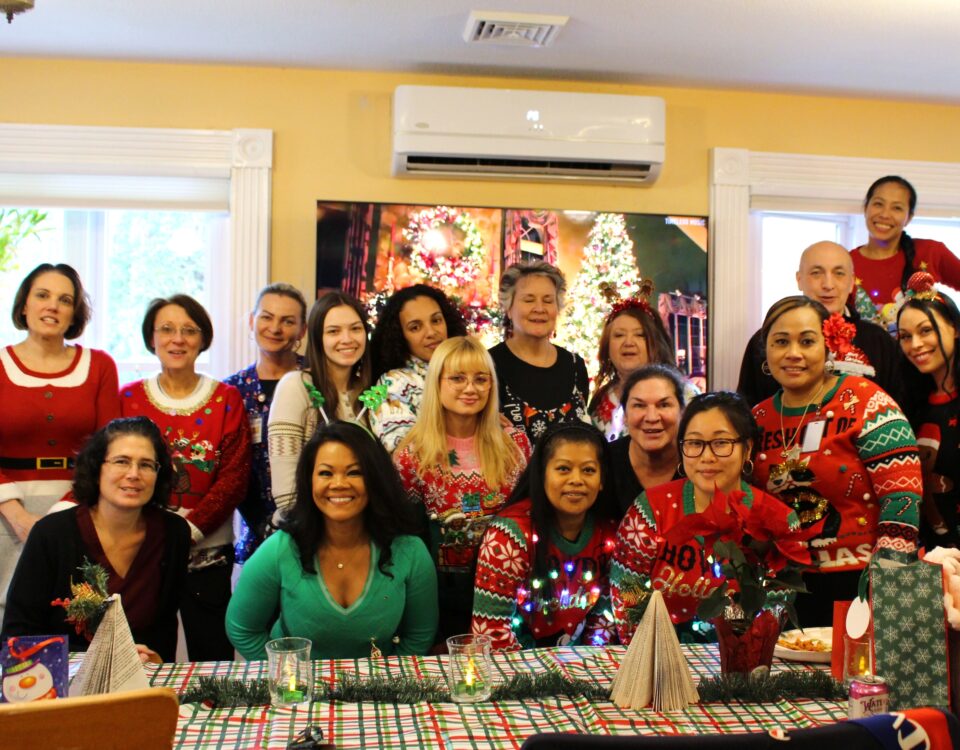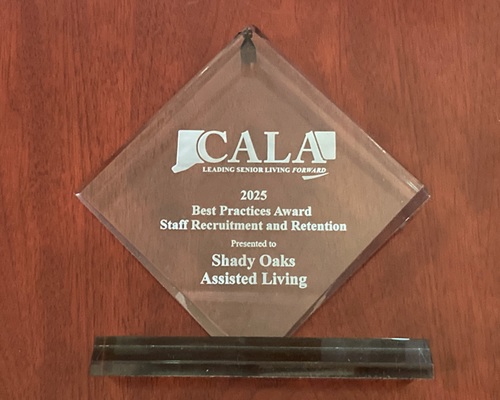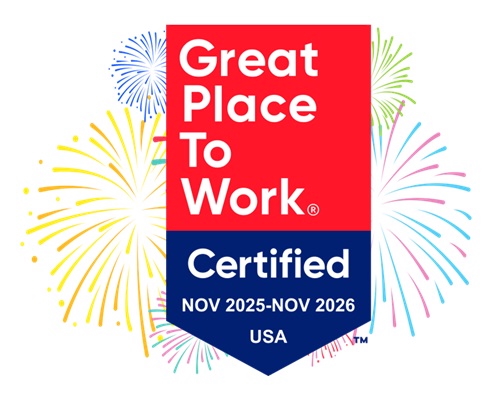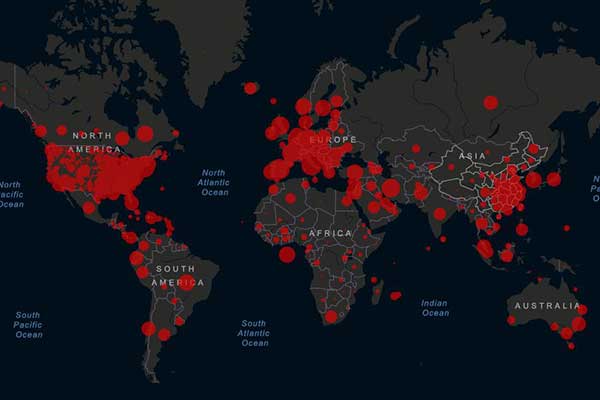
Shady Oaks Assisted Living Preparations Against COVID-19
March 31, 2020
Senior Home Workers Could Stay On-site During Crisis
April 8, 2020
Shady Oaks Assisted Living Preparations Against COVID-19
March 31, 2020
Senior Home Workers Could Stay On-site During Crisis
April 8, 2020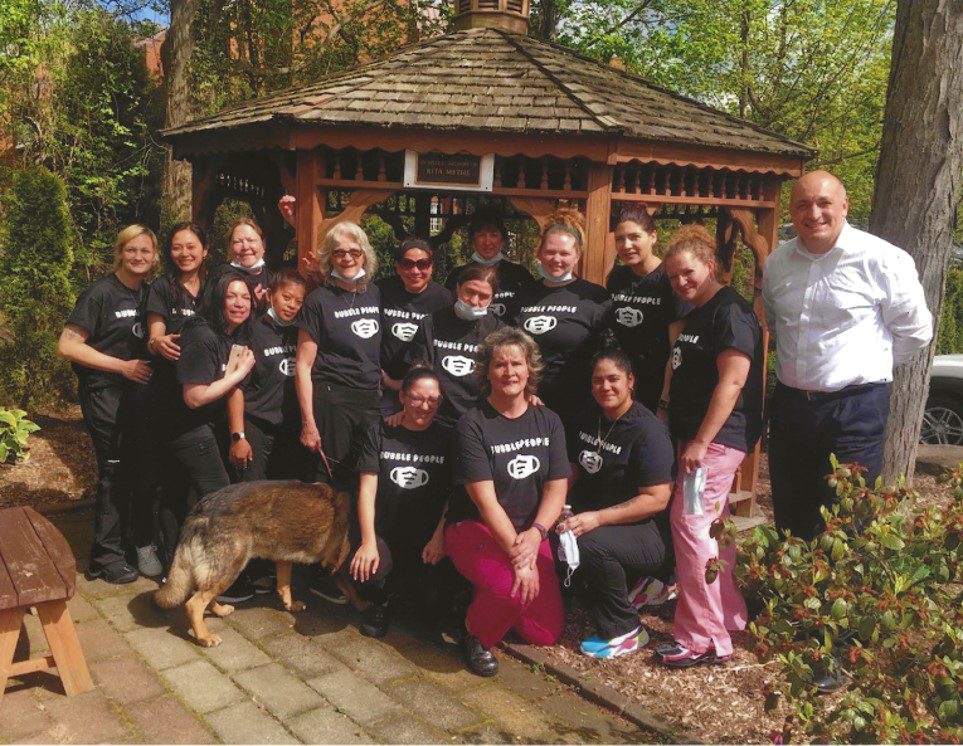
Shady Oaks Assisted Living Best Defense Against COVID-19
What is the best defense?
Shady Oaks is a small family-owned assisted living home in Bristol, Connecticut. We today have 37 residents. Most are over 90. All of them are critically vulnerable to COVID-19. To protect them, we restricted family members, visiting nurses, and delivery people from entering our home. Next, we screened our almost 50 staff members each day as they arrived for work. But we knew COVID-19 spreads without signs of ill-health, so we needed a better approach.
On 22 March, 18 staff members “bubbled up.” They each committed to live quarantined onsite alongside our residents for two months and not commute. We have the owner, our office manager, our chef, one Registered Nurse (RN), four Licensed Practical Nurses (LPNs), and ten Certified Nurse Assistants (CNAs). Four support staff commute but work separately and do not enter resident or staff living areas. Last week, zero persons entered our home from outside.
We believe this “whole-home quarantine” strategy is the best defense to protect our residents and staff from COVID-19. We want our home to remain infection free through the surge, so we can survive to reach warmer weather, better infection control, and increased testing. We also want Bristol Hospital to benefit by not needing beds for our residents and staff. In turn, this will help dozens of Bristol area residents who may need hospitalization to survive COVID-19.
Why do you need donations?
This hardship work for our quarantined staff. They now often work 60 to 80 hours per week. More painfully, especially during this terrifying crisis, our staff members cannot be with their families for two months. We have mothers who cannot hug their children. We have daughters who cannot help their sick parents. We have spouses who cannot hold their marriage partners. If quarantined staff members do leave our home, we really do not want to risk accepting them back into our bubble, because COVID-19 is now actively spreading in all our communities.
As sincere appreciation and strong incentive for our quarantined staff, the Shady Oaks owner offered large weekly bonuses, so the staff could afford to say yes and commit to this lifesaving project. Additionally, with humanitarian concern for our offsite workers and so our home can someday resume open operations, we are still paying full wages to our furloughed staff.
Shady Oaks does not have enough money for all this, and we do not want to raise it by demanding rents on our fixed-income elderly residents. Instead, the owner now draws over $70,000 weekly from his personal savings and lends it to Shady Oaks. Our home has become a safe place to live and work, but we cannot sustain this for long. Multiplied over eight weeks, the loans will amount to more than $560,000, and the business of Shady Oaks likely will never be able to repay the owner.
We ask for your donations only so we can help pay our quarantined hourly wage staff. Our aides and nurses are the grunt frontline troops of America’s war against COVID-19. For them, this noble effort is an opportunity to honorably serve our residents, stay safe, earn great pay, and lead with a positive light of caregiving during this dark time in America. We thank you for supporting them, so we can together proudly defend our residents, staff, families, hospitals, local community, and America.
More homes should do this!
I propose immediate governmental and charitable efforts so all senior homes can begin and sustain whole-home quarantines through their local COVID-19 surge weeks. I believe this will best protect our seniors, caregivers, and communities from COVID-19. This is an urgent issue. To succeed, whole-home quarantines start best with healthy staff and residents. However, as COVID-19 spreads, opportunities for clean starts diminish. As of 2 April, 19% of Connecticut’s nursing homes already have at least one patient with COVID-19. I have heard comparable percentages of assisted living homes are likewise affected. Many federal, state, and charitable leaders are debating trillions of dollars of economic stimulus and medical response. They should prioritize multiplier effects. The right financial help should not only help our economy – it should go to the frontlines and help defeat COVID-19.
In Connecticut, our COVID-19 surge may happen in the next several weeks. Connecticut has about 150 assisted living homes and 215 nursing homes. Even if our senior homes cannot enact full quarantines, partial programs will still help them be smaller targets for COVID-19. If each home gets $50,000 in weekly payroll assistance for six weeks, this will cost about $110 million dollars.
This might sound like a lot of money, but the alternative could be far worse. As COVID-19 spreads through our healthcare communities, senior homes may one-by-one succumb and melt down into mini-Chernobyls. Hundreds of seniors will die agonizing deaths, and our frontline caregivers will endure unspeakable horrors. Heroic aides and nurses will help stricken residents, become themselves infected, and then further spread COVID-19. How much would such a catastrophe cost?
We rightly admire our “Greatest Generation.” Many of our residents served in World War II and Korea. Others are surviving spouses and loves ones of those who served. They defended democracy and bore incredible personal burdens for America’s greater good. Today, we should repay them. . I believe whole-home quarantines will be their best defense. I wish our home to be a worthy and inspiring example, so governments and charitable efforts will help more senior homes do this. In an effort to share the idea, I proposed an opinion article in The Hartford Courant.
“You must never so much think as whether you like it or not, whether it is bearable or not; you must never think of anything except the need, and how to meet it.”
Clara Barton
Founder of the American Red Cross

